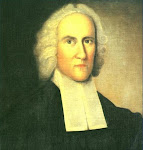The prophet Hosea spoke God’s words of condemnation, warning, and judgment to the people of the northern kingdom of Israel during the late 700’s and early 600’s B.C. Note the flow of thought in this description by the Lord, given through the mouth of Hosea, of the degraded moral and spiritual condition of his people:
There is no faithfulness or steadfast love,
and no knowledge of God in the land;
there is swearing, lying, murder, stealing, and committing adultery;
they break all bounds, and bloodshed follows bloodshed.
(Hosea 4:1b-2). The key thought in this text is that there is no knowledge of God in the land. The people have forgotten their Maker and Redeemer. They have turned their backs on the One who is their covenant God. They have spurned the word of the Lord and have refused to listen to his prophets. What is the result of this lack of knowledge of the Lord in the land? The general description is that the people lack steadfast love and faithfulness. Over and over in the Old Testament, especially in the Book of Psalms, the Lord is described as fundamentally a God of steadfast love and faithfulness. It is thus no surprise that if the people have turned their backs on the Lord, they would no longer be like him. They are devoid of the grace of God in their lives, so there is no evidence of steadfast love and faithfulness among them.
The last two lines of the section quoted above from the Book of Hosea describe the practical manifestations of the lack of knowledge of God and the resulting lack of steadfast love and faithfulness. This past weekend violent shootings in our city of Chicago took nine lives and wounded 28 other people. We weep over such senseless bloodshed, and we know the causes of such violence may be many. However, the one cause we can be sure of is that we no longer have the knowledge of God in the land. Because we have turned from his goodness and spurned his word, there is no steadfast love and faithfulness, and “bloodshed follows bloodshed.” Our prayer as the people of God must be for the Lord in his infinite mercy to cause his gospel once again to seize the hearts of men and women, for apart from the gospel, which brings the knowledge of God, the bloodshed will not end.
